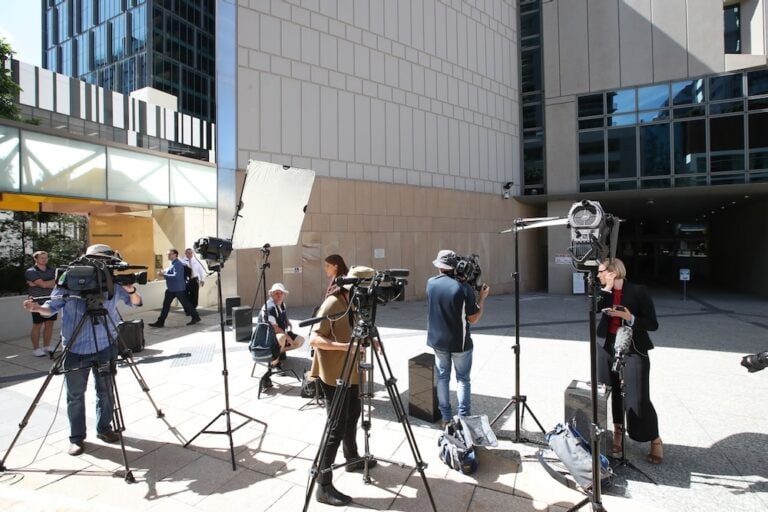(IFJ/IFEX) – The following is an IFJ media release: Australian anti-terror laws threaten press freedom The International Federation of Journalists (IFJ), the global organisation representing more than 500,000 journalists in over 110 countries, is concerned that anti-terrorism laws proposed by the Australian Federal and State governments may become yet another stumbling block for press freedom […]
(IFJ/IFEX) – The following is an IFJ media release:
Australian anti-terror laws threaten press freedom
The International Federation of Journalists (IFJ), the global organisation representing more than 500,000 journalists in over 110 countries, is concerned that anti-terrorism laws proposed by the Australian Federal and State governments may become yet another stumbling block for press freedom in Australia.
The IFJ is concerned that ‘notice to produce’ powers for the Australian Federal Police will be used to force journalists to hand over information including the identity of confidential sources and journalists’ notes which may identify sources.
“The proposed legislation seems to be part of a broader set of counter-terrorism measures which, taken as a package, effectively limit freedom of speech in Australia,” said IFJ President Christopher Warren.
In recent years, Australian journalists have come under increasing pressure to reveal the identity of their sources.
“The obligation of journalists to protect confidential sources is essential for information that is in the public interest to come to light,” said the IFJ President.
“If sources cannot speak to journalists with confidence that their identity will be protected, then whistle blowers will be much less likely to expose wrongdoing. The public will be significantly less informed and the watchdog role of journalism will be diminished,” said Warren.
Proposed extensions to sedition laws will shift the focus of the legislation to what people say, rather than the actual outcome of their action, a change that could radically alter the nature of legitimate public debate.
“This may drastically affect journalists’ right to freedom of expression and, in turn, the Australian public’s right to know. We urge the Australian governments to rethink this unclear proposal to avoid stifling free speech,” said IFJ President Christopher Warren.
“Journalists are right to be concerned that these laws will risk Australia’s press freedom in the rush to have the toughest anti-terrorism laws,” said the IFJ President.
The IFJ represents over 500,000 journalists in more than 110 countries.


